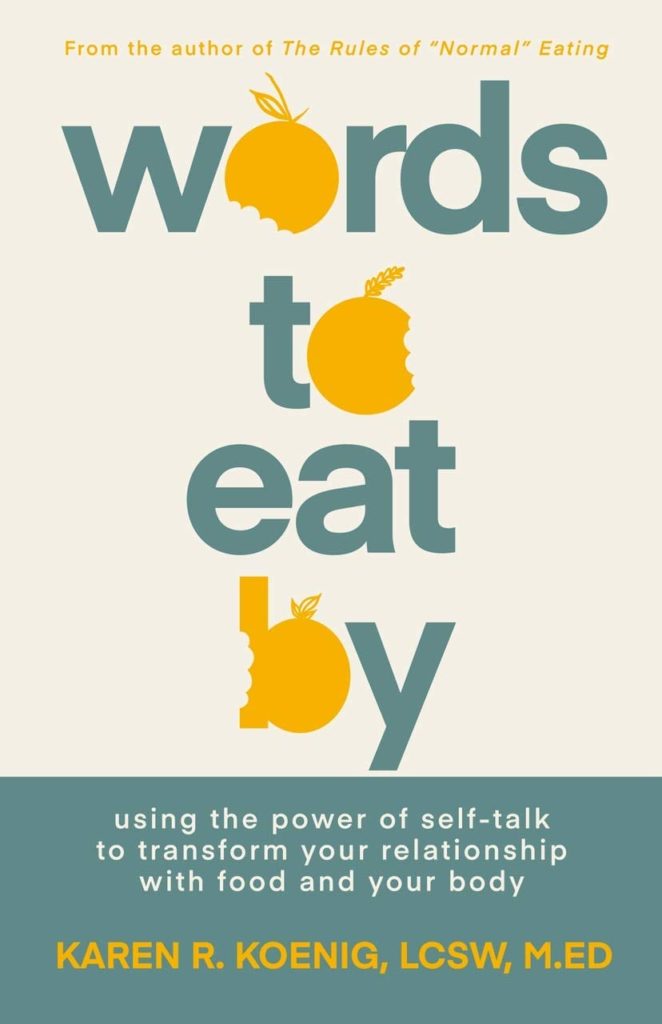You hear time and time again that you should be taking care of yourself. You know the basics (sleep, eat well, stay active), but how do you know if you think it’s time to bring in the help of a pro? We sat down with 10 different types of experts — many of whom you might not immediately think of when it comes to self-care — to give us the DL on why now is the right time to be seeking TLC in some not-so-obvious ways.
Why you should see… a podiatrist
A podiatrist is a physician and surgeon who treats conditions affecting your feet, ankles, and related structures of your legs. This could be anything from arthritis, diabetes-related conditions (for instance, people with diabetes are prone to nerve damage), foot/ankle injuries such as fractures and sprains, skin and nail disorders, and tendonitis. “During the pandemic, while most people have been at home, people have been spending less time in shoes and more time barefoot or in shoes with little or no support. This has caused overuse injuries such as plantar fasciitis,” says Dr. William Spielfogel, DPM, NY board-certified podiatrist. In addition, we’re seeing people exercising without the help of a trainer to correct their form, “so we have seen an increase in injuries such as sprains and stress fractures,” he says. “Even if you’re not experiencing pain at the moment, if you’re diabetic and have not been seen for a foot evaluation, this is the time to be seen by a podiatrist. It’s important to be proactive with your health and not wait for a big problem.”
Can they see me virtually? “It’s a good first step if you can’t get into the office, but most evaluations and all procedures need to be done in person,” he says.
Why you should see… an eating psychologist

Different from a nutritionist’s area of study, an eating psychologist helps you identify the why and how of eating, not the what of it (which is nutrition). “I teach clients how to eat intuitively and mindfully, reduce body and weight shame, and increase their self-care,” says Karen R. Koenig, LCSW, MEd, psychotherapist specializing in eating psychology. “In my capacity as a general therapist, I treat the whole person, not just their eating problems or weight concerns. This involves helping them to build life skills, learn to effectively regulate their emotions, improve their relationships, resolve internal conflicts related to food and their bodies, and develop personality traits that will lead them to enjoy a better life.
This year, due to the COVID-19 pandemic, many more clients are talking about being lonely and [due to the political climate of the past year] have been highly emotionally triggered and have increased anxiety,” she says. According to Koenig, now is a better time than ever to focus on improving eating: “For some people, the pandemic has added stress and that stress has made them more inclined to eat in an unhealthy manner. This is the perfect time to learn to manage your eating. In fact, I’ve had several new clients say that they specifically choose this ‘down’ time to turn their eating around,” she says.
Can they see me virtually? “I personally use two different teletherapy platforms, both HIPAA approved, and also do phone therapy, which works out very well. I’ve been doing teletherapy for a long time, before the pandemic hit, and find that clients are very happy with it, especially because it’s so easy to access.”
Why you should see… a chiropractor
Raise your hand if your back hurts. Sure, a chiropractor is typically known to help with that, but they actually offer so much more: “Typically, the general population thinks that chiropractors only adjust or crack the joints of your spine. This isn’t wrong because the majority of chiropractors spend 5-10 minutes with patients performing the adjustments,” says Chris Jepsen, doctor of chiropractic. Often mistaken with a physical therapist, “I am able to treat any area from head to toe. Through positive manipulation of the muscles, fascia, ligaments, and joints, I facilitate your body to heal itself and move more freely and accurately. Chiropractic adjustments release gas that builds up within the joints due to poor posture, injury or lack of movement which causes a decrease in the normal range of motion. Once the muscles, fascia and joints have all been released, I work with patients on corrective exercises and stretching to help maintain the work that was done on the body,” he says. With the lack of our daily commutes and being homebound, “the most common issues are neck and low back pain due to poor posture. People tend to be more comfortable at home while looking at the computer or the phone which creates more pressure on the spine leading to pain in the neck, shoulders, low back and hips. The pandemic has patients coming in more frequently than previous years,” he says.
Can they see me virtually? “I can work virtually, but it would not be the same experience for the patient if I cannot treat them in person. However, I can lead them through stretches and corrective exercises with telemedicine.”
Why you should see… a water sommelier
If you drink water (so, everyone), then you could learn a lot from a water sommelier. “Like a wine sommelier, a water sommelier knows the origin and terroir of different water sources. Due to the different mineral compositions that are dissolved in water by nature, water has an impact on other beverages and food and therefore can be paired like wine,” says Martin Riese, water sommelier and water advocate. “A water sommelier wants to educate on the importance of water, bring attention to naturally occurring sources, protect nature, fight for the human right of clean, and save our environmental resources,” he says. One distinction should be made clear: “A lot of people think that a water sommelier should answer health-related questions, like which water is good to fight cancer, and so on. We all know that electrolytes and minerals dissolved in water can have an impact on your well-being, but a water sommelier is not a doctor. A water sommelier is a hydration coach and wants to create moments for your palate,” he says. “Water is our life elixir. Without water, life would not exist on this planet, so I strongly believe the more we know about water, the more we will honor water. We all have to start to change our relationship to water and save it. Millions of people don’t have access to safe and clean drinking water! Proper hydration is the key for healthy well-being, so it’s not just to drink water, it’s about what water you should drink.”
Can they see me virtually? “Especially right now in a pandemic, people can’t travel these days, due to a virtual water tasting you can take people on a trip around the world by tasting the origin of different waters. It’s fun, it’s hydrating, and you can be very surprised by how different water can actually taste,” he says.
Why you should see… an art therapist
No, art therapy isn’t a ‘paint and sip’. “Art therapy sessions are led by licensed, professionally trained art therapists whereas art classes are led by a teacher. The focus and goals in an art therapy session are often about the process, self-discovery, expression, and the therapeutic relationship between client and therapist. These sessions, like all therapy sessions, take place in a safe and confidential setting,” says Pooja Bakri, LCAT, ATR-BC, a board-certified creative arts therapist. “Art Therapy is a specialized mental health and human services profession that incorporates creativity, play, and art-making into the therapeutic experience. Creative arts therapists are licensed professionals that are trained in both the arts and psychotherapy. As clinicians, we are able to use art-making and the creative process as tools in our sessions to address a range of mental, emotional, developmental, and behavioral issues. This can include but is not limited to anxiety, depression, trauma, life changes and personal well-being. No prior experience or skills with art-making are necessary to benefit from this process. It is all about your own personal journey and individual experience. Art therapy is a safe way to express yourself and can be helpful when looking for opportunities to manage stress and promote mental and physical health.”
Art therapy can be a safe, nonverbal method to express yourself if you’ve been dealing with heightened anxiety and stress that’s difficult to put into words. “The COVID-19 pandemic has caused added daily stressors, fears and an increase in isolation. People are struggling with not having accessible outlets to help cope with these challenges. Expressing yourself through art can help by providing you with healthier ways to release negative emotions, and exercise our imagination.”
Can they see me virtually? “In March of 2020, I began seeing all of my clients through virtual sessions. I now see clients back in the studio office as well as offering virtual sessions for those who feel more comfortable with telehealth. Art therapy can certainly be effective as a virtual session,” she says.
Why you should see… a sound healer
Hear that? It could be your self-care calling. “Sound healing has the ability to help with a variety of different ailments and issues. It is deeply relaxing and offers a reset, leaving the participant feeling refreshed. Often it can help with anxiety, depression, and physical pain. There is a great published study here. Sound healing, — often called a sound bath or sound meditation — is deeply restorative,” says Roxie Sarhangi of Roxie Sound Healing, sound healing practitioner and artist. “Every guide has their own specific approach, but you can think of it as a meditative acoustic sound ‘concert’. It activates your body’s own natural system of self-healing. Participants simply lie down on a yoga mat or in any comfortable place. My sessions are heart-centered, connecting the mind, body and soul. You simply listen to the healing sounds of crystal bowls, gong, and ocean drum, Tibetian bowls, and Kochi chimes. Participants come in with a variety of different needs, but a common desire is to feel less stress, anxiety, and to feel relaxed. The pandemic has definitely brought in additional stress and everyone is now looking for additional ways to relax and heal. Sound healing is very special in that you don’t have to do anything but lie down and the sound will affect you. It is truly a magical, musical journey.”
Can they see me virtually? Definitely. “I was informed that an ER doctor was using my virtual sound sessions after his long shifts to deeply relax. And, of course, anyone who wants to feel more at peace. The sessions have now connected souls beyond Southern California, throughout the world in Vietnam, New Zealand, Paris, London, Romania, among other countries, and all throughout the U.S.”
Why you should see… a CBD specialist
It’s official: CBD (short for cannabidiol) is no longer just a trend. But there are a lot of different types out there, and the information can be confusing since CBD hasn’t been widely studied. “I first help people determine if CBD is right for them and walk them through the different types of ways to use it (e.g. vapes vs. edibles, etc.), the strength of CBD, dosage, and how often to use it,” says Dr. Rachna Patel, an expert CBD doctor. When it comes to skincare, CBD can be helpful for inflammation (and while it’s said to be beneficial for acne or firming wrinkles, there aren’t enough scientific studies to prove it). “I’ve seen it help conditions like migraine, nausea, ulcerative colitis, ADD and ADHD, post-traumatic stress disorder, Parkinson’s Disease, cancer pain, psoriasis, but the most common conditions I’ve treated include anxiety, chronic pain, and insomnia,” she says. “Routines, plans, predictability all went flying out the window in 2020. We as humans crave certainty. The lack of certainty can pull the rug beneath even the calmest of people. For many, anxiety and insomnia have bubbled over. And they’re desperate for a solution. CBD just may be the answer.”
Can they see me virtually? “Absolutely — even pre-pandemic. I’ve been doing consults virtually since 2018.”
Why you should see… a holistic nutritionist
There is plenty of diets- and wellness-related fads out there that claim to work on anyone, but the truth is that everyone is different. A holistic nutritionist takes a more personalized approach. “I turn to natural remedies and a balanced diet rather than a medicine cabinet for healing and prevention. I take a whole body, proactive approach to health rather than just treating symptoms by identifying the root cause and considering all factors that affect one’s well-being,” says Cindy Kasindorf, founder of Remedy Organics and a holistic nutritionist. “I have treated clients with an array of ailments such as eating disorders, weight loss, diabetes, and autoimmune disease management. However, my services can also benefit those without specific ailments who are looking to improve their overall well-being. I create a personalized wellness plan which guides my clients to live a balanced lifestyle along with practicing healthy eating habits. With the COVID-19 pandemic threatening our health and uprooting our daily routines, it’s more important than ever to practice a healthy lifestyle balance and be conscious about what we consume. Having a holistic nutritionist to guide and keep you on track to your health goals can be extremely helpful, especially when the days seem to blur together.”
Can they see me virtually? “Yes, through the use of technology many can now practice virtually,” she says.
Why you should see… a walking coach
If you’re working from home, chances are the pedometer on your phone or Fitbit is looking a little sad these days (there are only so many feet between your home office and your fridge). “Like a personal trainer, a walking coach can help you to challenge yourself, create a training plan, and help you improve your technique to get the most out of your walks. They can also help you to be more accountable and motivate you to stick with your workouts,” says Michele Stanten, walking coach, ACE-certified fitness instructor, author of Walk Off Weight, co-author The Walking Solution. Everyone can benefit from walking better and walking more — though lots of people think of training walkers as working with people who have physical limitations, like physical therapy types of training. I work with healthy individuals who are sedentary and just looking to get more active and are looking for motivation and accountability, looking to take their love of walking to the next level (like a half or full marathon), or people who simply want to get more benefits from their walks. Most fitness professionals and doctors simply tell people to go walk, but there are lots of different ways to walk. And depending upon someone’s goals, there might be a better way to walk to get the results they want,” she says. These can be tips on how to make walking less achy on your joints, how to get faster or burn more calories with your walking workout.
Can they see me virtually? Yes, though it can be tougher to see your body’s full form virtually, you can still get consults and advice.
Why you should see… a sexological bodyworker
We believe that sex-care is an important part of self-care — whether that means with a partner or enjoying sex solo. A sexological bodyworker “helps people understand their sexual responses and increase their capacity for pleasure. It focuses on learning the skills it takes to have more freedom and more pleasure,” says Christina Sophie, clinical sexologist (ACS) and certified sexological bodyworker. (By the way, it takes up to two years to get certified, depending on how intensive the program.)
“I work with women who have low sexual desire, painful sex, and/or difficulty with orgasm. I also help women discover what they actually like sensually and sexually. We practice the skill of asking for what they want in a way that makes it more likely they will get it. I help women discover the pleasure map of their body, and expand the sensation of pleasure in their bodies. I help people heal from any sexual shame and I fill in the holes in people’s sex and relationship education — we all have them. Couples and families are under enormous pressure with the pandemic and economic crisis. This year has been mostly about couples’ issues. While every situation is unique, broadly men go to sex to relieve stress, and the pressure to have sex can cause stress for women. It can create a situation where intimacy is no longer a source of connection for a couple,” she says.
Sexological bodywork can also benefit those who aren’t going through a specific issue: “Few of us have been given the opportunity to prioritize learning about our body’s capacity for pleasure. Exploring sexuality is a relatively untapped source of personal growth and empowerment,” says Sophie. “[Poet] Audre Lorde said: ‘Recognizing the power of the erotic within our lives can give us the energy to pursue genuine change within our world…’ This is the deeper mission of my work.”
Can they see me virtually? “I have had so much success working virtually that I’ve pivoted my entire practice online. Sexuality and intimacy are, well, incredibly intimate topics. I think the virtual format helps people to feel more comfortable in their own homes.”
We only recommend products we have independently researched, tested, and loved. If you purchase a product found through our links, Sunday Edit may earn an affiliate commission.








